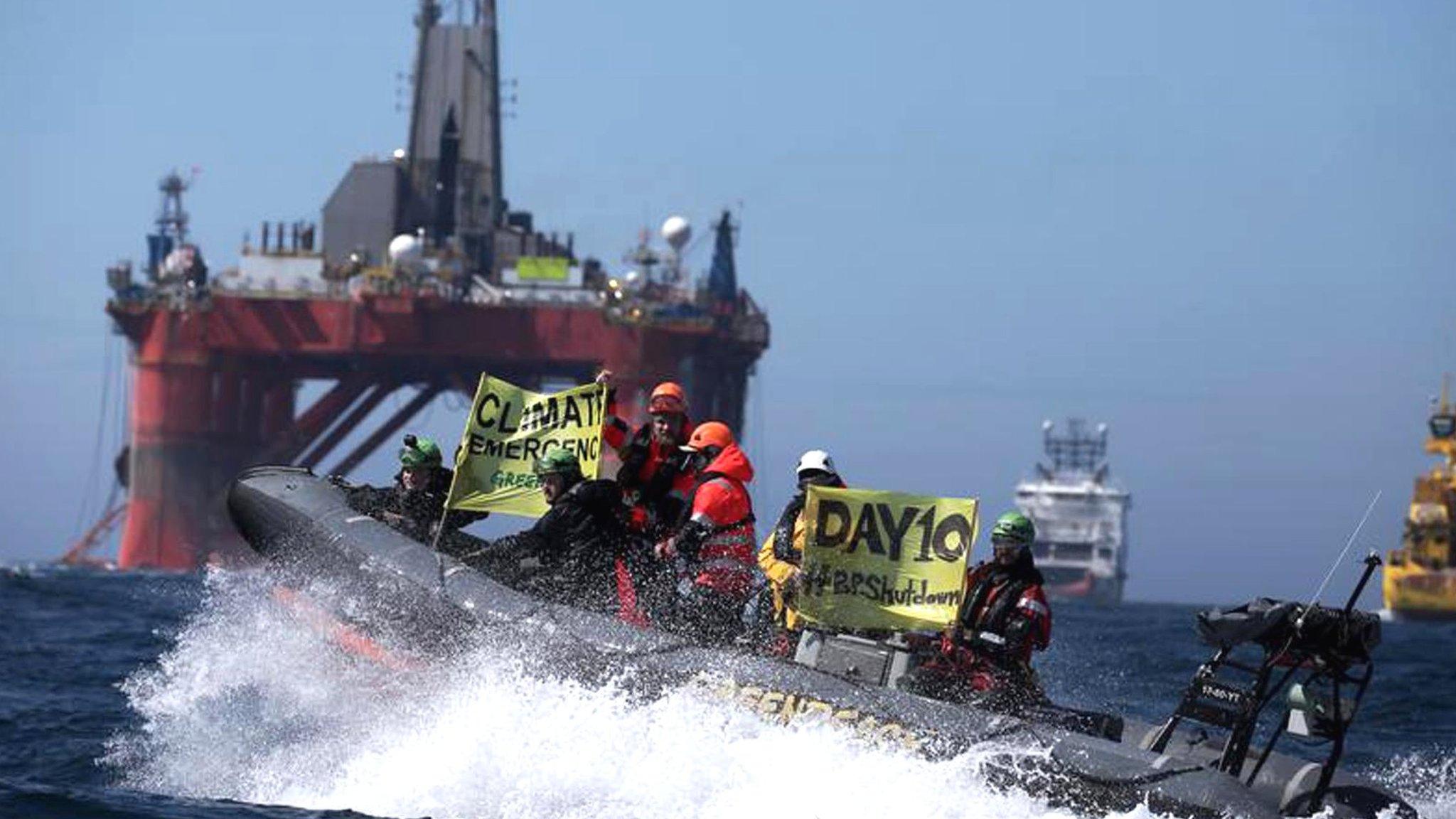Shell wins court order to prevent Greenpeace North Sea protests
- Published
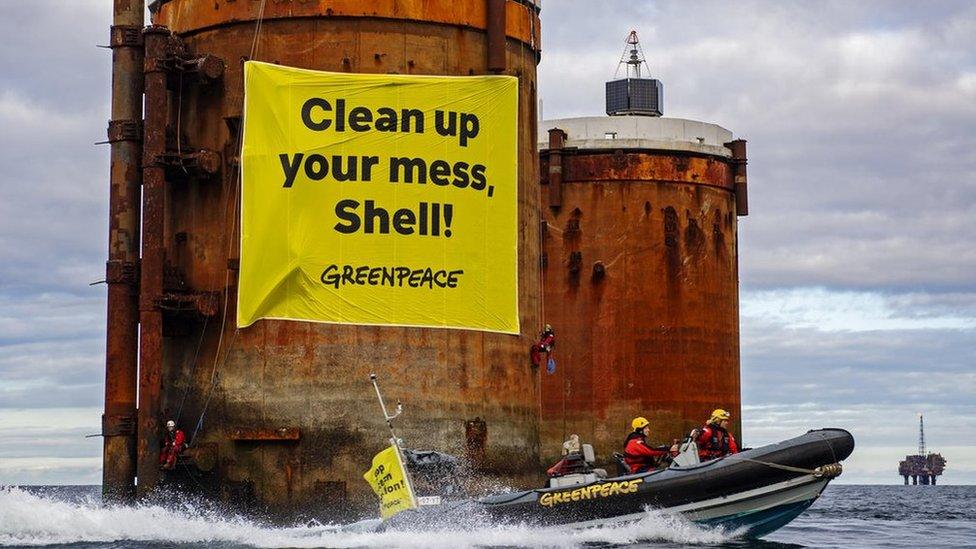
Greenpeace boarded installations off Shetland earlier this year
Energy giant Shell has won a court order preventing Greenpeace activists from boarding unmanned oil and gas installations in the North Sea
The company's lawyers sought an interim interdict to stop any repeat of an occupation which targeted platforms in the Brent field in October.
Shell welcomed Lady Carmichael's ruling that the activists had no right to enter the installations.
Greenpeace described the Court of Session ruling as a "setback".
In October, climate activists staged a protest against the method of decommissioning platforms in the Brent field, which is about 116 miles (186km) north east of Shetland.
'Hazardous oily sludge'
Activists spent a night on the Brent Alpha platform and on the concrete legs of the former Bravo platform.
Greenpeace said it was opposed to "thousands of tonnes of hazardous oily sludge" being left inside the concrete legs which remain after the rest of the structure has been removed.
Shell has defended the process and said there was a "tightly-controlled regulatory process" for decommissioning.
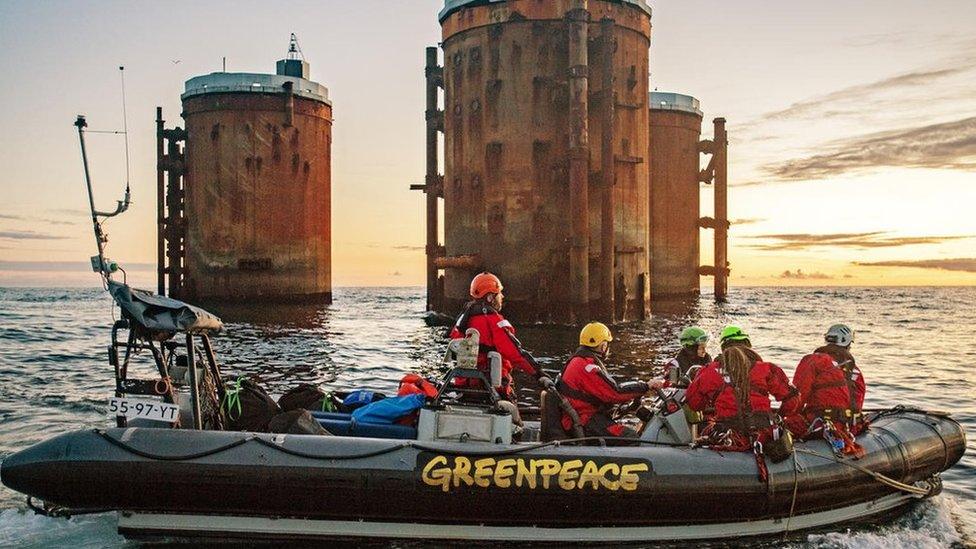
Greenpeace are protesting against decommissioning methods which leave oil inside concrete legs of platforms
The company said it sought the court order to prevent protesters breaching the statutory 500m safety zones around platforms and "putting themselves and Shell staff at risk".
The judge concluded that since they were private property, Shell had a legal right to stop the activists from accessing the installations.
She also ruled that given the physical state of the installations, protesters could injure themselves.
Lady Carmichael said these health and safety considerations gave the company the right to stop Greenpeace from boarding the facilities.
The ruling means that Greenpeace can no longer go within a 500m (1,640ft) safety zone around platforms in the Brent field.
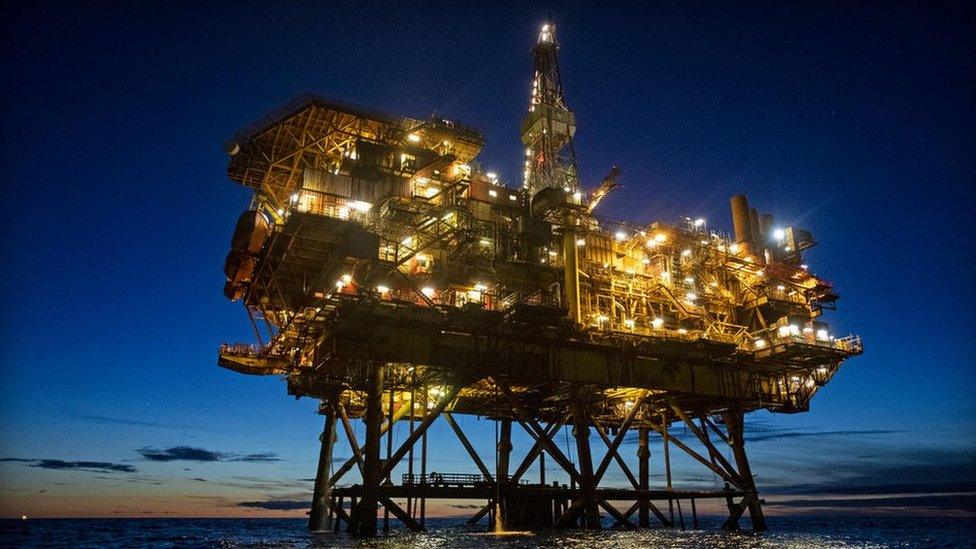
Greenpeace protesters climbed on to the Brent Alpha in October
Shell said: "We wholeheartedly support the right to protest peacefully and safely.
"We are pleased this decision recognises that the existing legal safety zone should be respected by campaigners."
Greenpeace said it was waiting for a written ruling, which it would "thoroughly analyse" before deciding whether it would appeal against the judgement.
It added: "This is a setback. Greenpeace has almost 50 years of experience with safe and peaceful protest.
"We strongly believe in the right to protest and will keep defending it. Shell can try to shut us up, but we will only get louder."
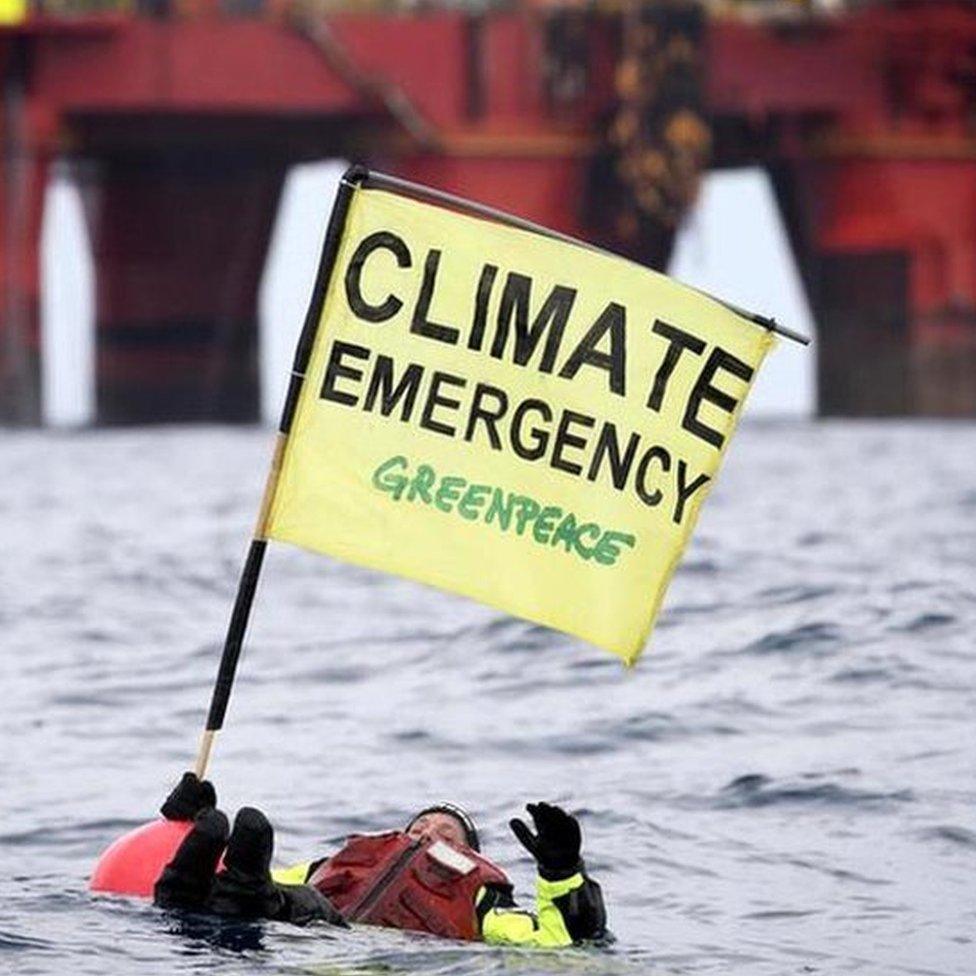
Various attempts were made to block a rig's path in June

The occupation in October came several months after a 12-day Greenpeace protest in the North Sea which led to numerous arrests.
In June, campaigners boarded the Transocean rig in the Cromarty Firth, which was bound for the Vorlich oil field east of Aberdeen.
Greenpeace said the aim was to thwart BP's plans to drill new oil wells.
The protest delayed its departure from the Cromarty Firth for five days. The Greenpeace ship Arctic Sunrise then shadowed the rig into the North Sea, and the group said the rig was forced to turn back towards land.
A swimmer with a banner also entered the water as part of attempts to block the rig's path.
BP said the "irresponsible actions" had put people and property at risk and "diverted valuable time and resources away from public services".
- Published28 November 2019
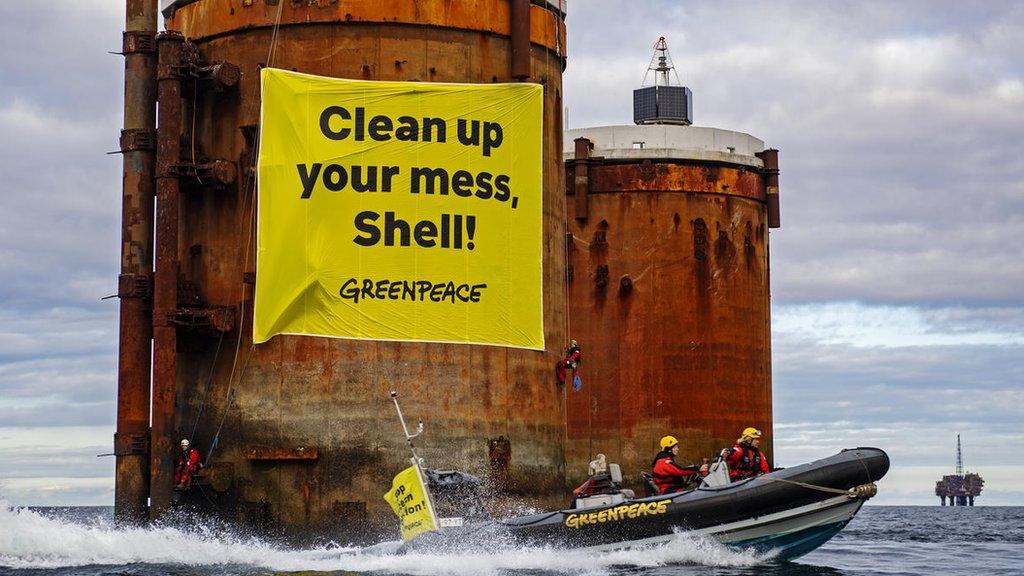
- Published15 October 2019
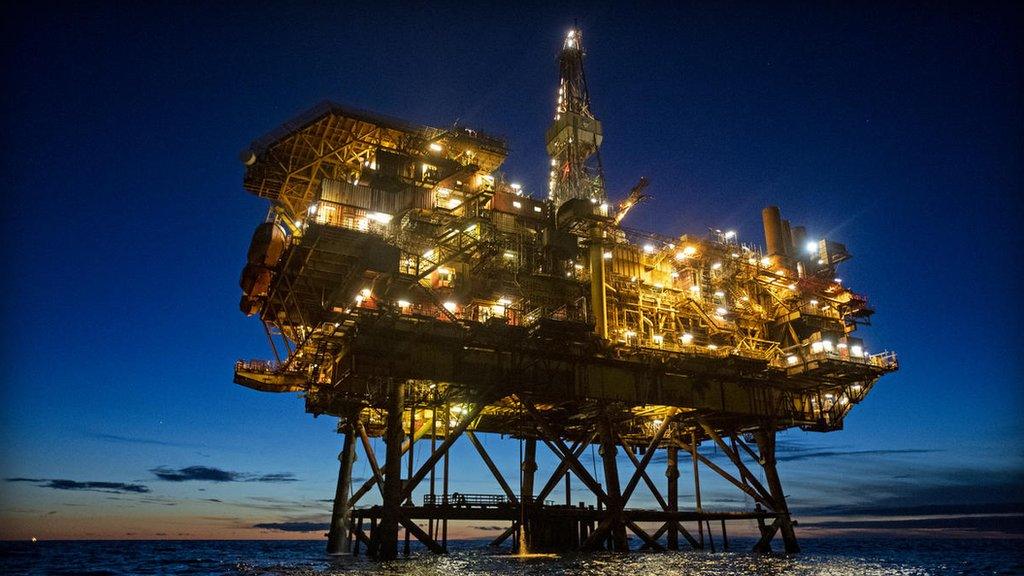
- Published14 October 2019

- Published20 June 2019
